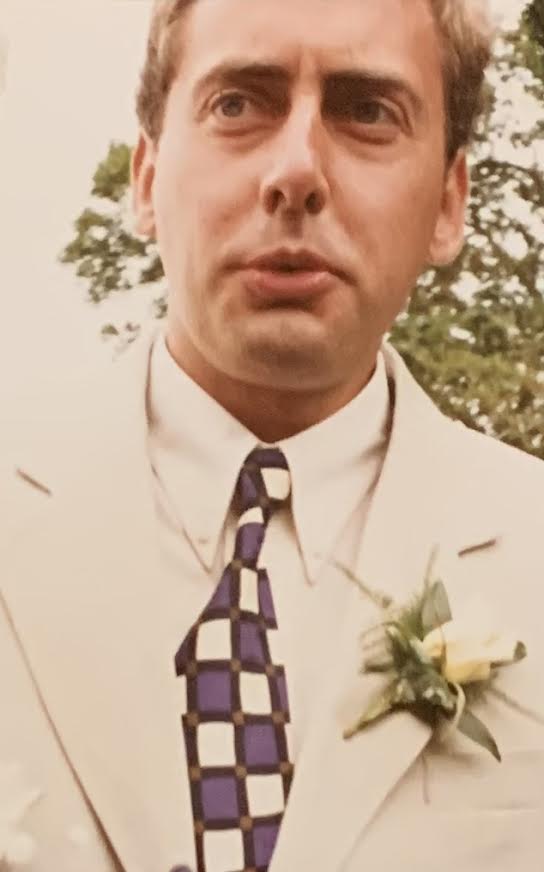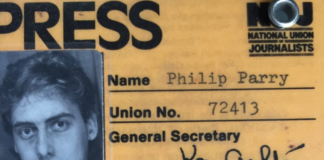- Jobs for the boys and girls - 21st January 2026
- Huwge mistake with public money… - 20th January 2026
- Green with envy… - 19th January 2026

During 38 years in journalism, and 23 years at the BBC, our Editor Phil Parry, was always taught DO NOT USE JARGON AND SAY WHAT YOU MEAN! Here, though, he looks at more evidence of how the use of ‘business-speak’ is growing ever stronger.
Earlier he has described how he was helped to break into the South Wales Echo office car when he was a cub reporter, recalled his early career as a journalist, the importance of experience in the job, and making clear that the ‘calls’ to emergency services as well as court cases are central to any media operation.
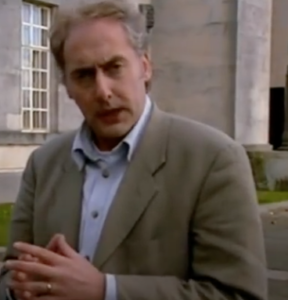
He has also explored how poorly paid most journalism is when trainee reporters had to live in squalid flats, the vital role of expenses, and about one of his most important stories on the now-scrapped 53 year-old BBC Cymru Wales TV Current Affairs series he presented for 10 years, Week In Week Out (WIWO), which won an award even after it was axed, long after his career really took off.
Phil has explained too how crucial it is actually to speak to people, the virtue of speed as well as accuracy, why knowledge of ‘history’ is vital, how certain material was removed from TV Current Affairs programmes when secret cameras had to be used, and some of those he has interviewed.

He has also disclosed why investigative journalism is needed now more than ever although others have different opinions, and how information from trusted sources is crucial at this time.
It seems I am fighting a losing battle against the increasing use of mindless ‘business-speak’.
Now a leading figure in the UK media world has employed it, but I am left scratching my head trying to work out what it actually MEANS!
Charles Yardley, (Chief Executive Officer [CEO]) of the Evening Standard in London, was evidently very proud of a recent promotion in his newspaper, and told staff: “We should celebrate our continued cover wrap success this fiscal which has already yielded a huge £1.3 million.
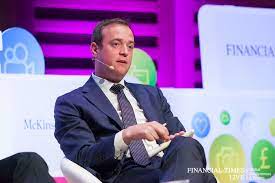
“Exclusive wins for Virgin Atlantic, British Heart Foundation, and Strike were significant drivers across January. We will look to continue momentum and drive our big ticket solutions across this second quarter”.
“…social… really brings this product (the Evening Standard magazine ES) in a meaningful way that paves a digital forward thinking path for growth”.
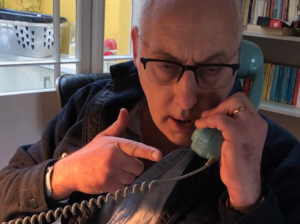
Quite apart from this kind of language being totally MEANINGLESS, it makes my blood boil that a journalistic publication can be called a ‘product’!
Mr Yardley, however, is not alone, and I have seen how senior figures in the Welsh media as well as sport, also play a significant part in this phenomenon.
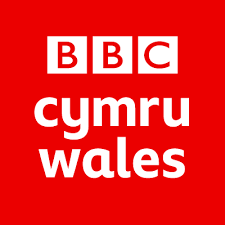

Look, for example, at a recent announcement from Rhuanedd Richards, (formerly CEO of Welsh nationalist party Plaid Cymru [PC], but now the ‘Director of Content and Services’ for BBC Cymru Wales [BBC CW]). Ms Richards had thanked a man on social media for congratulating her on getting the job, despite the fact that he had been placed under police investigation, and the nationalist paper he went on to found, only lasted EIGHT months! She has also this week been effusive in her praise of the controversial Editor of BBC Cymru Radio Wales (RW) Colin Paterson, who, it seems, has been ‘promoted’ amid a fanfare of publicity. This came even though his station secured record low audience figures, and he conducted an affair with a married presenter, when his officials had commissioned a programme she fronted.
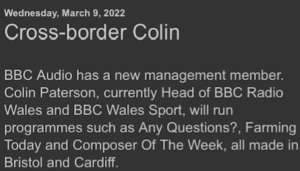 She has declared: “We must make more impact and become more relevant to more people rather than super-serving the same people”.
She has declared: “We must make more impact and become more relevant to more people rather than super-serving the same people”.
Let’s unpack this a bit, as far as we can. It takes a little time, but I THINK the first part means that audiences should want to WATCH the BBC CW television material, LISTEN to its radio output, and READ what it has to offer online.

Yet surely a broadcaster would want to do this anyway, so it shouldn’t need to be stated at all!
Or am I just being thick?!
Perhaps we can find an answer by examining in a bit more detail (if you can bear it!) a pronouncement from the man in charge of football’s governing body in Wales, the Football Association of Wales (FAW), Noel Mooney, when he was giving details of a new ‘governance’ strategy.

He said: “The FAW is at the start of an exciting journey that will see us become a thought leader in world football”.
The phrase, though, is perplexing.
What exactly does ‘thought leader’ mean?! !s it just thinking about it, but not actually doing it?
No idea.

I’m not entirely sure either, what other statements by Mr Mooney mean.
His Linkedin profile declares: “Growing the beautiful game across Wales through high performance, increased participation, developing facilities for all, digital transformation, strong partnerships, focused public affairs, insights-led, sustainability, equality, diversity and inclusion, good risk management and utilizing our resources to reach our full potential 🏴⚽️”.

But perhaps these sort of comments establish a “path for growth”, because at a time when journalism is a “product”, and where people shouldn’t be ‘super-seved’, yet it is an “exciting journey” to become a “thought leader”, they seem to be a “driver”.
Other key phrases though might need interpreting (maybe alongside these).
For instance if your boss tells you: “Have you got five minutes?”, you should worry.

You are in deep, deep trouble…
The memories of Phil’s remarkable decades long award-winning career (when using ‘jargon’ or ‘business-speak’ was a complete no-no) as he was gripped by the rare neurological disabling condition, Hereditary Spastic Paraplegia (HSP), have been released in a major book ‘A GOOD STORY’. Order the book now!

Regrettably publication of another book, however, was refused, because it was to have included names.









